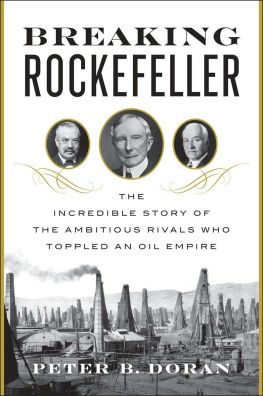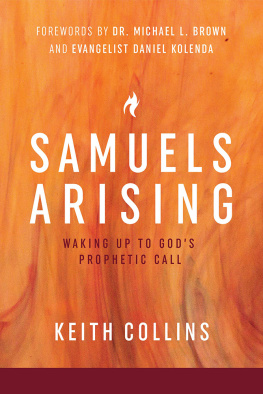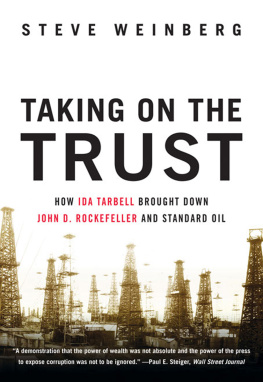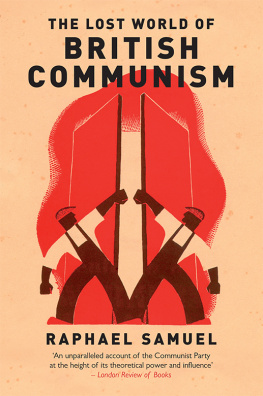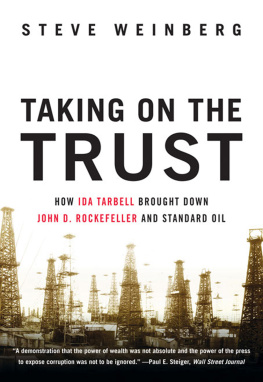Copyright 2016 by Peter B. Doran
Penguin supports copyright. Copyright fuels creativity, encourages diverse voices, promotes free speech, and creates a vibrant culture. Thank you for buying an authorized edition of this book and for complying with copyright laws by not reproducing, scanning, or distributing any part of it in any form without permission. You are supporting writers and allowing Penguin to continue to publish books for every reader.
For a great many the oil business was more like an epic card game, in which the excitement was worth more than great stacks of chips.
William C. Mellon
Introduction

I n August 2000 a group of twenty-four American and European writers, videographers, petroleum enthusiasts, and energy experts departed the oil city of Baku with a unique cargo. Secured in the sidecar of a World War IIera Ural motorcycle was a single barrel of oil. The aim of this motley caravan was to make the very first delivery of Azeri crude to the Turkish port of Ceyhan. Their route would take them along the course of a phantom pipeline.
Snaking west from the Caspian Sea, the group would climb to nine thousand feet above sea level, ride over the Caucasus Mountains, and meander across the Anatolian peninsula before reaching a spur of the ancient Silk Road at Ceyhan, on Turkeys Mediterranean coast. If it were ever to be built, this hypothetical pipeline would break Russias monopoly on overland oil routes to Europe and unclog the crowded tanker traffic through the Bosporus, the strait at the mouth of the Black Sea. Yet despite the vast sums of political and financial capital that had already been invested in the project, this idea was still just a line on the mapa pipeline to nowhere. For observers invested in the promise of Caspian oil, the lack of progress in constructing the Baku-Tbilisi-Ceyhan (BTC) pipeline was a source of constant frustration. By delivering that very first barrel to Ceyhan, riders in this weird convoy hoped to demonstrate the difficulties of transporting oil along ancient trade routes and past persistent conflict zones.
After almost two decades since the incredible odyssey of that single barrel of crude, the BTC pipeline is now a reality. However, the obstacles that it faced are as old as the oil industry itself. Crude is a substance that no one wants to touch, smell, or taste yet everyone wants to control. Since oil rarely occurs where it is needed most, that question of control ultimately comes down to distance, geography, risk, technology, and greed. This is certainly true in the twenty-first century, as Russias fearsome energy monopolies defend their energy routes into Europe. It was absolutely true at the start of the last century, when a differentand equally powerfulmonopoly ruthlessly did the same. Only that monopoly was American, not Russian. The company was Standard Oil, and it was led by the wealthiest human being who has ever lived: John D. Rockefeller.
CHAPTER 1
The King of Broadway

F or two days in late September 1889, a tropical cyclone threatened the East Coast of the United States. Approaching with little warning, the storm churned the southern shipping lanes out of New York Harbor and dumped torrents of rain along the New Jersey coast. Abruptly on the evening of Wednesday, September 25, the path of the autumn noreaster changed. Instead of careening into New York, it turned east into the Atlantic. On Thursday morning, Manhattan awoke to a damp bank of mist and coal smoke. The fog besieged the edges of the island and shrank the limits of the visible world to just one hundred feet. It was a dangerous way to begin a Thursday.
The peculiar fog that morning created a small nightmare for the flotilla of ferryboats, freight steamers, and sailing vessels that plied the waterways around Manhattan Island. Without the benefit of sight, boat captains and slip masters conjured an eerie fugue of warning bells, ship whistles, and foghorns on the Hudson and East Rivers. With so many boats on the water and so little visibility, some kind of collision was inevitable. Surprisingly, the only calamity that morning occurred when a blind tugboat plowed into an oyster fishermans boat at the narrow Hell Gate to Queens. There were no reported deaths. The damage to the tug was mercifully small. Aside from perils on the water, there was little else to distinguish the morning of September 26 from any other in the late 1880s. But this was no ordinary dayat least not for the richest man in America that morning: John D. Rockefeller.
Much like the island city around him, Rockefeller was a creature of repetitive rhythms, and he worked like a machine. Habitually punctual, inveterately secretive, and eternally impatient in long meetings, he explicitly exempted only Sunday from matters of money. Business consumed him on every other day. Each morning before work, he sat for a shave in the parlor of his home at 4 West 54th Street, just five blocks south of Central Park. Each evening he concluded the days business by meticulously tallying every conceivable expense and source of income in a black notebook. More constant as a companion than any friend he had ever known, the little pocket ledger accompanied him everywhere. Finally, on the schedule of his many rituals, the commemoration of September 26 was particularly special. This was Rockefellers Job Day, his own private holiday.
In the Rockefeller household, Job Day was rich in meaning. Typically commemorated with family and a few invited guests after work, it was the anniversary of Rockefellers first paid position as a bookkeeper at the Cleveland-based produce brokerage of Hewitt and Tuttle. The job paid fifteen dollars a week. And a fifteen-year-old Rockefeller had secured the post based primarily on his penmanship. Over the decades, he celebrated his memory of Job Day with a mixture of solemnity and cheer. It eventually assumed such prominence that it would eclipse his own birthday as the most important commemoration of his life. Job Day was the beginning of his beginning. It was a personal dividing line that separated everything that had come before from everything that came after. All my future seemed to hinge on that day, Rockefeller recalled. And I often tremble when I ask myself the question: What if I had not got the job?
By 1889, fully thirty-four years had elapsed since the original Job Day. Now forty-nine, Rockefeller bore little resemblance to his teenage self. The features of his broad, square face had grown angular. His wide, earnest eyes had narrowed. The boyish Cupids bow on his upper lip had disappeared beneath a bushy mustache. Creased lines trailed down the corners of his mouth from the edges of his red whiskers. Yet even as his outward appearance had changed in the intervening years, his many inward abilities had become more pronounced. One of the most important among them was a devilish knack for ledgers.
One meaningful consequence of Job Day was that Rockefeller began his career from the perch of a bookkeepers stool. Life among the ledgers at Hewitt and Tuttle was vastly different from the freewheeling commercial showmanship of his father, William. The elder Rockefeller made his living as a fast-talking, fly-by-night huckster, peddling miraculous elixirs to the sick across Americas expanding frontier. One of Williams bestsellers was a bottled cure for cancer. While his medicine did not work, his dubious sales pitch did. By contrast, John D.s entry into the world of commerce was bereft of theatrics or the ethically dubious business practices of a snake oil salesman. Instead, his was a rigorously quantitative realm of profit, loss, credit margins, interest rates, shipping costs, and corporate expenses. For a bookkeeper, every action at Hewitt and Tuttle produced an equal and opposite reaction on his ledger. A penny earned at the company required Rockefeller to debit a cent from cash and to record a simultaneous credit to income. Repeated endlessly, the rote calculations of double-entry bookkeeping represented the financial heartbeat of the firm. Recording them was mind-numbing yeomans work. But it was a task for which Rockefeller was a ferociously quick study.

